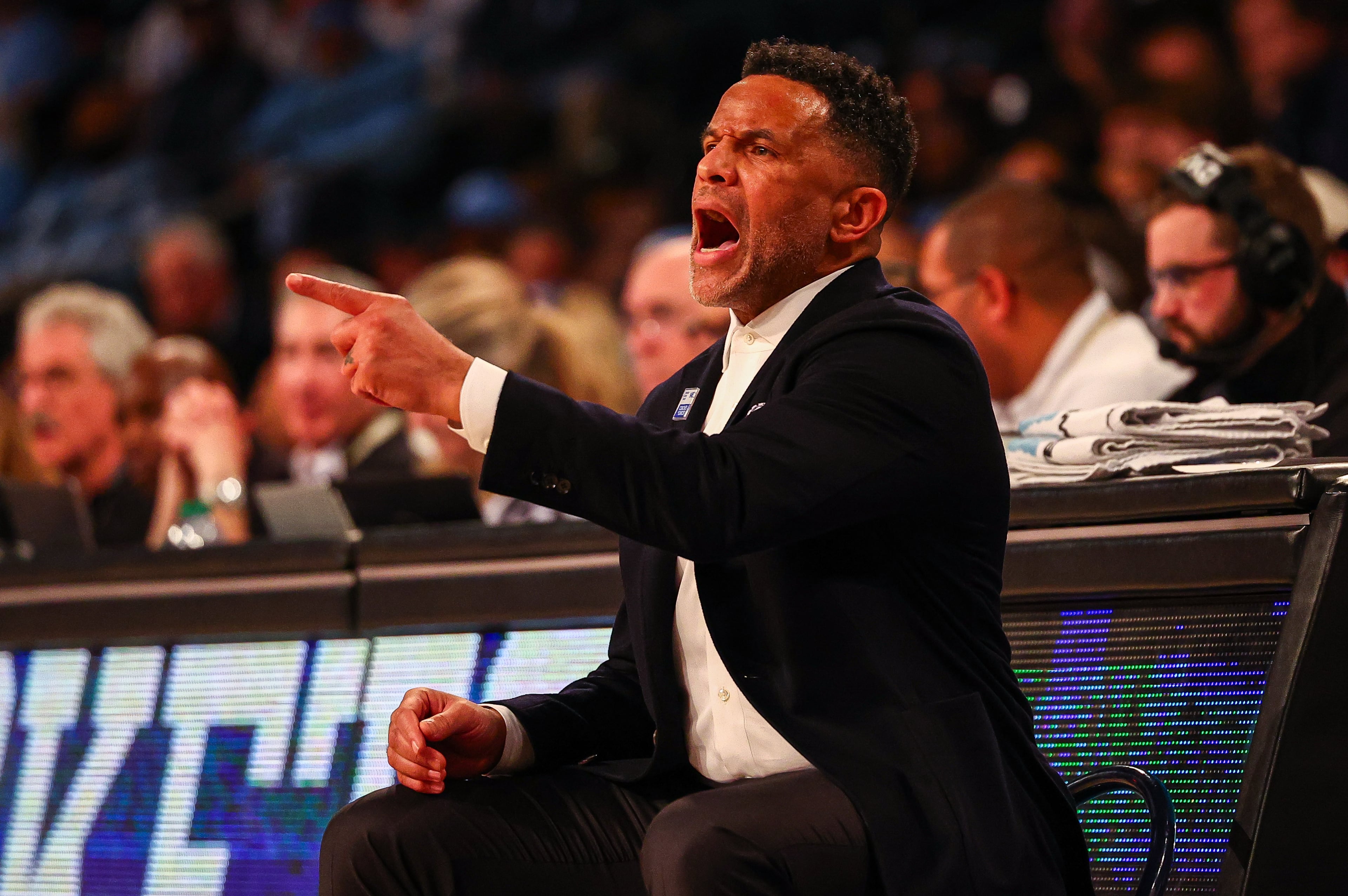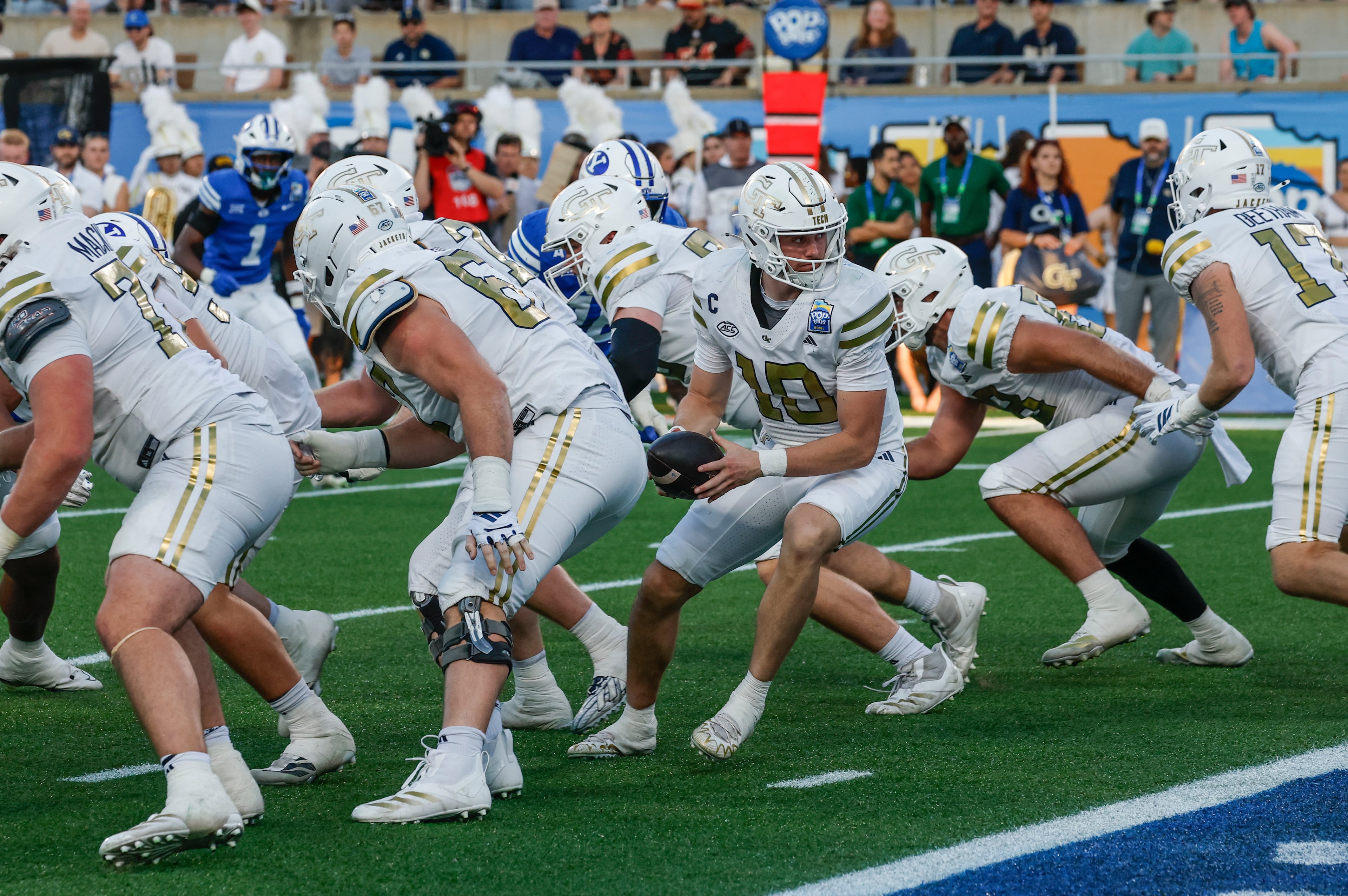Defense lapsing as Georgia Tech’s slide continues

Georgia Tech coach Josh Pastner likes to describe himself as not just seeing the world as the glass half full, but the glass overflowing. On Wednesday, he found few drops to drink when describing his team’s defensive play against Wake Forest.
“Defensively, we’re not really good right now,” Pastner said following the Yellow Jackets’ 80-64 home loss Wednesday night. “That’s been a staple of our program. I just have not done a good job on that, obviously. If we’re not playing great defense, that falls right on the head coach.”
The Jackets’ lapses on defense fell into two primary categories against Wake Forest. One was poor transition defense, which allowed the Demon Deacons to get down the court for easy baskets after Jackets turnovers and misses (of which there were many). The other was poor defense at the rim, as Wake Forest moved the ball well on the dribble and pass to break down the Jackets and create dunks and layups in their half-court offense. Wake Forest put down eight dunks Wednesday, tied for the most that Tech has allowed in a game this season and more than double its season average.
“I just feel like we have to lock in more defensively,” guard Michael Devoe said.
The Demon Deacons rank fourth in Division I in two-point field-goal percentage, but did well even for them Wednesday, making 78.1% of their field-goal tries inside the 3-point arc. Tech had not permitted an opponent to make more of its two-point shots since December 2015, to a Villanova team that would go on to win the national championship.
No power-conference team had allowed an opponent to shoot that accurately since the 2019-20 season, according to sports-reference.com.
For Tech, though, the Wake Forest game was, while extreme, still part of a pattern. In Pastner’s first five seasons, when ACC all-defensive team centers Ben Lammers, James Banks and Moses Wright patrolled the back of Tech’s 1-3-1 zone defense as shot-blocking threats, their teammates could funnel the ball into the paint, knowing the three shot-swatters loomed behind them.
In Pastner’s first four seasons, Tech ranked in the top four in the ACC in blocked shots per game. Last season, the average dipped to 12th, with 3.5 blocks per game, but Wright still was an effort-filled interior presence, and the Jackets compensated by leading the league in steals per game with 9.1 per game. This season, Tech ranks 12th in blocked shots (3.1) and sixth in steals (7.5).
Tech opponents shot 46% or less on two-point field goals in Pastner’s first four seasons, and the Jackets ranked in the top 50 of Division I each season. It was 50.8% last season (220th) and was 51% after Wednesday (231st before Thursday’s games).
“The two-point field-goal percentage has just kicked our rear,” Pastner said. “All season long.”
A thread that has run throughout Tech’s season has been the insufficient play in the post. Center Rodney Howard plays with effort, muscle and size, but is not a shot blocker in the mold of Lammers or Banks and also has a limited game on offense. Forward Saba Gigiberia has a better offensive game than Howard, but does not play with the same defensive force. Forward Jordan Meka is the best shot blocker of the three and plays with energy, but is probably the most limited on offense.
After Howard was sidelined with an ankle injury, Pastner started Meka for the following three games, in which he blocked six shots but scored only four points in a total of 60 minutes of play. He has not played since. It would not be a surprise if he sees more time in games ahead.
Pastner went with a small lineup for the next two games, and Boston College and North Carolina shot 56.1% and 55.3% on two-point field-goal attempts, numbers that typically have equated with defeat for Tech.
On Wednesday, Howard returned, but the Jackets’ effort was flagging, enabling the succession of uncontested or lightly contested shots at the basket. Not liking what he was seeing on the floor in the first half, Pastner made the unusual decision to sub out all five players (including four starters) at the 13:16 mark, and then made two more five-for-five swaps before the end of the half.
“I guess some of the guys had low energy towards the beginning of the game, so he wanted to make a point, make a statement that we need to come out with high energy,” Devoe said.
Pastner made the observation that the team was “flying around” against Boston College and North Carolina, helping make up for the size deficit. Against the Demon Deacons, Pastner said he saw lethargy.
“Our chin went down to our chest, and that’s not like us,” Pastner said. “We’re such an energy team.”
Continuing to suffer from prolonged scoring lapses – the game got away from Tech with a 20-5 second-half run that lifted the Demon Deacons to a 69-56 lead with 5:51 remaining – didn’t help Tech’s energy level, either.
After the loss to Wake Forest, the Jackets’ ninth in the past 11 games, Pastner recognized that it may appear that the sky is falling on the defending ACC champions. He stressed the importance of staying positive. Tech next plays Sunday against Division II Clayton State, an opponent scheduled to replace the game with Alabama A&M that was at first postponed and then wasn’t able to be rescheduled.
“I understand for the fans, they’re not happy,” he said. “I’m not happy. But the reason is because of me. I have not done a good job to this point with this group. So I’ve got to be better because we have good guys, and I’ve got to help them to the best of my ability. I’m going to figure it out and try to get better so we can try to win on Sunday and get going next week.”



